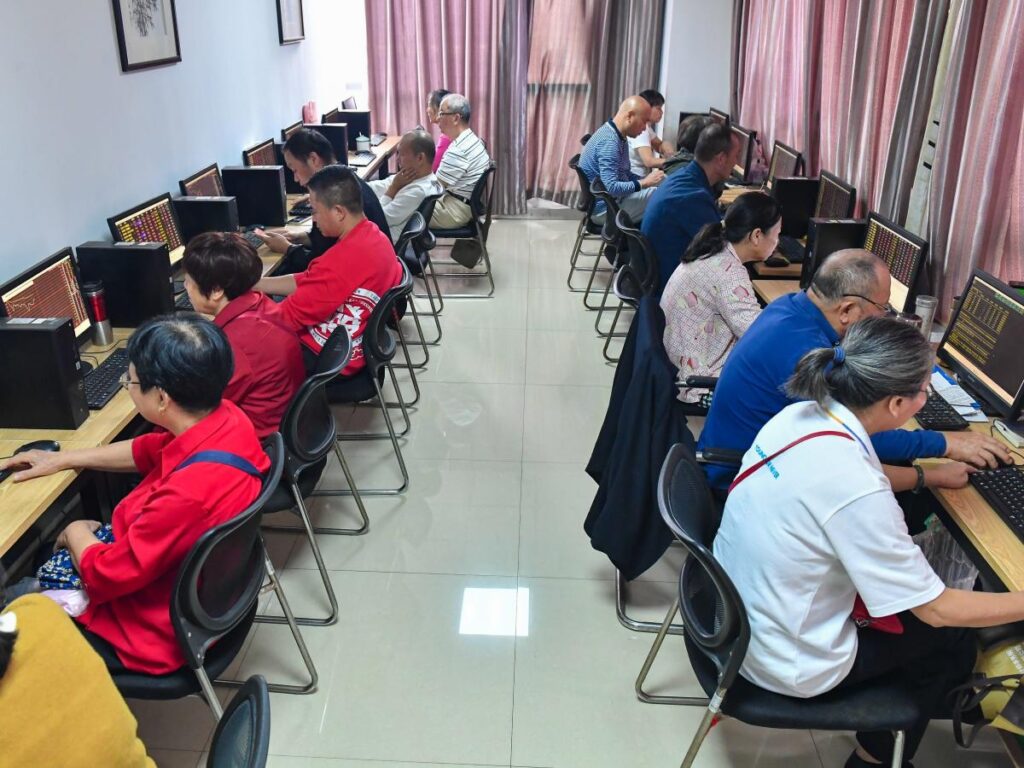-
China’s stock markets slumped after a 10-day rally that was driven by Beijing’s stimulus announcement in September.
-
Investors were disappointed when a hyped-up Chinese government press briefing failed to deliver more stimulus.
-
Retail investors dominate China’s markets, influencing sentiment and market movements.
China’s top leadership has a problem with its economic stimulus: its own investors at home saw right through the hype this week.
China’s domestic stock markets slumped on Wednesday after a 10-day blitz culminated in a two-year high.
The mainland’s benchmark CSI 300 Index closed 7.1% lower, while leading indices in Shanghai and Shenzhen ended the day 6.6% and 8.7% lower.
China’s domestic stock markets are dominated by over 200 million mom-and-pop retail investors, who account for about 70% of the trading volume. so market movements reflect ground sentiment.
The markets were boosted in late September after a stimulus announcement by the People’s Bank of China. The CSI 300 index closed nearly 20% higher year-to-date before weeklong National Day public holidays. The markets reopened on Tuesday and ended higher, though that morning’s immediate bump cooled off during the trading day.
The rally fizzled because China’s National Development and Reform Commission, the country’s top economic planner, lined up a highly anticipated press conference on the first working day after weeklong public holidays. But the commission did not introduce more stimulus measures, which dragged market sentiment.
China watchers are more optimistic
It looks like China’s investors are less optimistic than market watchers elsewhere. Those abroad are expressing more confidence in the world’s second-largest economy and seeing the bright side in this week’s losses.
Since the commission is actually responsible for implementation rather than funding initiatives, most analysts weren’t expecting much stimulus in the first place.
Some professionals even view this week’s stock losses positively. Hong Kong’s Hang Seng Index — dominated by institutional investors — ended the day down 1.4%, extending Tuesday’s 9.5% slump. The index is 9.3% lower so far this week.
“We believe a pullback following a 36% rally in less than a month may be healthy in allowing market participants to reassess recent policy developments, while providing entry points for new investors and creating more balanced market participation,” wrote Yeap Jun Rong, a market strategist at trading platform IG, in a Wednesday note about the Hong Kong market.
Instead of harping on market jitters, economists are now pointing to Beijing’s political commitment to improving the economy.
“To be sure, there may still be an expectations gap as announcements fall short of loftier expectations. But that’s not as damaging as market misgivings about Beijing getting stimulus cold feet,” Vishnu Varathan, Mizuho’s macro research head for Asia excluding Japan, wrote in a note on Wednesday.
After the initial stimulus announcement on September 24, China’s top leaders swiftly pledged support for the economy, including in the beleaguered property market.
According to Xinhua state news agency, Chinese Premier Li Qiang called on the country to implement economic stabilization measures on Tuesday.
“There is a case to be made that Beijing’s initial pronouncements of boosting the equity market, supporting housing unequivocally are sound commitments,” wrote Varathan. He said that China is already in the midst of a hard landing — and Beijing knows it.
“And so, Beijing is now fully invested in efforts to extricate the economy holistically,” he wrote.
Economists are waiting for more meaningful support measures.
“We expect a fiscal package to be announced in coming weeks, including demand-boosting stimulus on consumption and investment, as well as further enhancement of social security, healthcare, and birth encouragement,” wrote Hele Qiao, the Greater China chief economist and head of Asia economics research at BofA Global Research, on Tuesday.
Qiao expects an announcement after the next meeting of China’s top legislature, which typically takes place any time from mid-October to early November. The exact date will only be announced a week or two before the meeting.
Read the original article on Business Insider
Read the full article here

